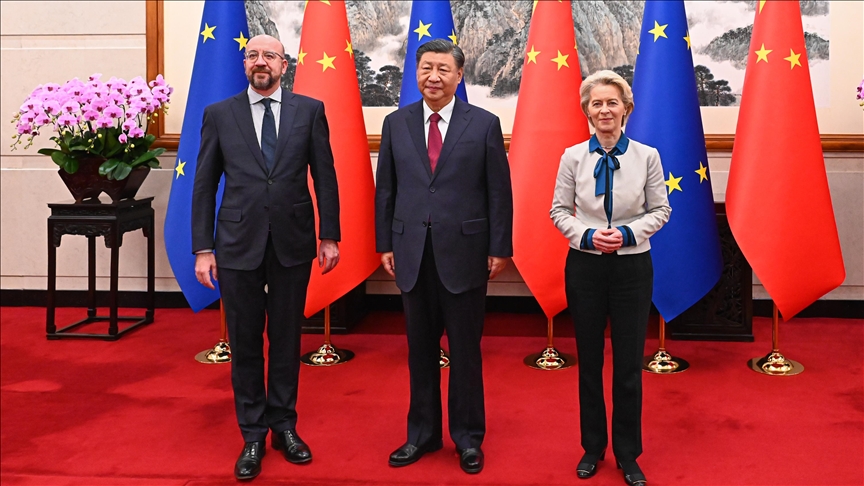European Union leaders met with Chinese President Xi Jinping in Beijing in a high-stakes summit that laid bare the complexities of the EU-China relationship, which has come under increasing pressure amid widening trade imbalances and geopolitical disagreements. European Commission President Ursula von der Leyen called the meeting an “inflection point,” signaling a shift in how Brussels plans to engage with its largest trading partner in Asia.
While both sides emphasized dialogue and cooperation, tensions were palpable throughout the summit. The EU delegation raised concerns about China’s trade surplus, restricted market access, and industrial subsidies, while Chinese officials pushed back against what they see as unfair scrutiny and protectionist measures by the EU.
Trade Imbalances and Economic Tensions
One of the central points of contention remains the massive trade imbalance. In 2024, China recorded a €305.8 billion trade surplus with the EU, a figure that Brussels deems unsustainable. EU leaders, including von der Leyen and European Council President Charles Michel, argued that the Chinese market remains closed to many European firms and called for more reciprocity in trade rules.
Brussels also reiterated concerns about industrial overcapacity, especially in sectors like electric vehicles, solar panels, and steel—where Chinese state subsidies have fueled exports that undercut European producers. EU officials urged China to reduce distortive practices and expand access to key sectors of its domestic market, including digital services and raw materials.
In response, Xi emphasized that China remains open to trade and is willing to resolve disputes through constructive dialogue. However, he warned that “decoupling or derisking” could damage global supply chains and harm both economies.
Strategic and Political Frictions
Beyond trade, the summit highlighted deeper geopolitical differences. EU leaders pressed Beijing to play a more active role in ending the war in Ukraine. Despite its official position of neutrality, China has maintained close diplomatic and economic ties with Moscow since the war began. According to Brussels, China’s stance undermines Europe’s security and complicates broader cooperation.
China, on the other hand, called for “mutual respect” and rejected what it called the EU’s efforts to “externalize its security concerns.” Officials in Beijing warned against linking bilateral economic cooperation to third-party conflicts.
Additionally, discussions touched on technology controls, human rights issues in Xinjiang and Hong Kong, and Beijing’s growing influence in the Global South—all of which remain flashpoints in EU-China diplomacy.
Modest Climate Progress Amid Broader Tensions
Despite the discord, one area of agreement emerged: climate cooperation. The summit concluded with a joint statement reaffirming both parties’ commitment to the Paris Agreement, methane emissions reduction, and collaboration on clean energy innovation ahead of COP30 in Brazil.
Both sides pledged to work together on sustainable finance and carbon markets, despite broader tensions. While modest, this progress was seen as a positive signal that functional cooperation remains possible even in a strained geopolitical environment.
What’s Next for EU-China Relations?
Analysts say the EU is entering a new phase of engagement with China—one that blends competition with selective collaboration. Brussels appears determined to push back against economic asymmetries and strategic divergences without severing ties entirely.
For its part, China is facing growing skepticism in Western capitals and may need to offer concessions to avoid a wider regulatory backlash. As Europe advances its economic security agenda and prepares for possible new trade defense tools, the next year could prove pivotal in redefining one of the world’s most important bilateral relationships.







